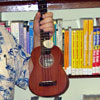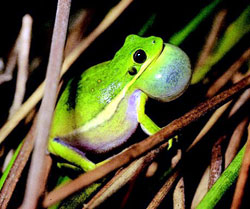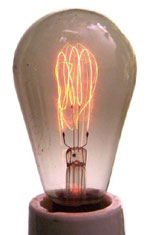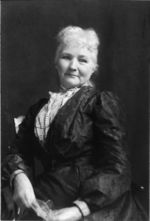 Here’s a ukulele song that’s really flexible for storytimes and other children’s events – “She’ll be comin’ ’round the mountain.” It’s easy to play; my arrangement uses the same old C – F – G7 chords I’ve typically used throughout the uke songs I’ve posted here. You can, however, transpose it up and down the scale as it pleases you and as your skills improve, if you don’t want to feel as if you’re stuck in the same key with every song you play (for example, to F – Bb – C7 or G – C – D7).
Here’s a ukulele song that’s really flexible for storytimes and other children’s events – “She’ll be comin’ ’round the mountain.” It’s easy to play; my arrangement uses the same old C – F – G7 chords I’ve typically used throughout the uke songs I’ve posted here. You can, however, transpose it up and down the scale as it pleases you and as your skills improve, if you don’t want to feel as if you’re stuck in the same key with every song you play (for example, to F – Bb – C7 or G – C – D7).
So, anyway, who is the “she” who’s coming around the mountain? As Wikipedia tells us:
While it is not entirely clear who the “she” in the song refers to, there are various plausible interpretations. One interpretation suggests that “she” is the train that will be coming through the tracks that are being laid out by workers.
Carl Sandburg, in The American Songbag, suggests that “she” refers to union organizer Mary Harris “Mother” Jones [pictured] going to promote formation of labor unions in the Appalachian coal mining camps.
Currently the song is usually sung in collections of children’s music with slightly different lyrics. The song has been recorded by musicians ranging from Pete Seeger to Barney the Dinosaur.
(I had no idea that Barney was a musician.) Some people may object to singing “We’ll kill the old red rooster” in a preschool storytime. This doesn’t bother me, and I never saw it bother the kids, but some of the parents and caregivers may object. If it bothers you, you can always sing, “We’ll go shopping down at Whole Foods when she comes,” and for the next verse, even “We’ll eat a mess of tofu when she comes.” (Sorry.)
Seriously, though, the thing I find great about this song is how you can change the lyrics to fit a particular program need. For example, some time ago I discovered a version on the Web, on a site called “Grandpa Tucker’s Halloween,” called “She’ll be riding on a broomstick when she comes.” This site no longer seems to exist; the version I link to appears to be a Google archive. So grab these lyrics while you can; I’ve used them in every Halloween program I’ve done for the last five years.
You can use the tune for Christmas (“We’ll give her [or she’ll bring us] lots of presents when she comes”), Mother’s Day (“We’ll have those flowers ready when she [Mom] comes”), Thanksgiving, Summer Reading or any holiday that needs more songs that work with younger children. Try it.
And do watch this video on the BusSongs.com site (scroll down to the bottom to see it). I loved it, but I wouldn’t try playing the song quite this fast with young kids.
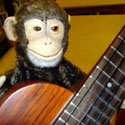 Do you remember the post not too long ago about the MA library that loans out a ukulele? The “Unshelved” guys (one of whom is a uke player) did a comic strip about it. I’ve noted in the past that Americans tend to enjoy ukuleles, or they hate them in the way some folks hate glockenspiels or accordions, and the dichotomy between the two attitudes is pretty apparent in this strip.
Do you remember the post not too long ago about the MA library that loans out a ukulele? The “Unshelved” guys (one of whom is a uke player) did a comic strip about it. I’ve noted in the past that Americans tend to enjoy ukuleles, or they hate them in the way some folks hate glockenspiels or accordions, and the dichotomy between the two attitudes is pretty apparent in this strip.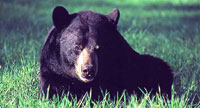 I’m starting the new year with an old song,
I’m starting the new year with an old song, 

 I’ve always thought it exceedingly odd that there are two well-known songs for young children that feature ducks, and one is called “Five Little Ducks,” while the other is “Six Little Ducks.” I’ve sung ’em both (not at the same time) for a long while, and I posted
I’ve always thought it exceedingly odd that there are two well-known songs for young children that feature ducks, and one is called “Five Little Ducks,” while the other is “Six Little Ducks.” I’ve sung ’em both (not at the same time) for a long while, and I posted 